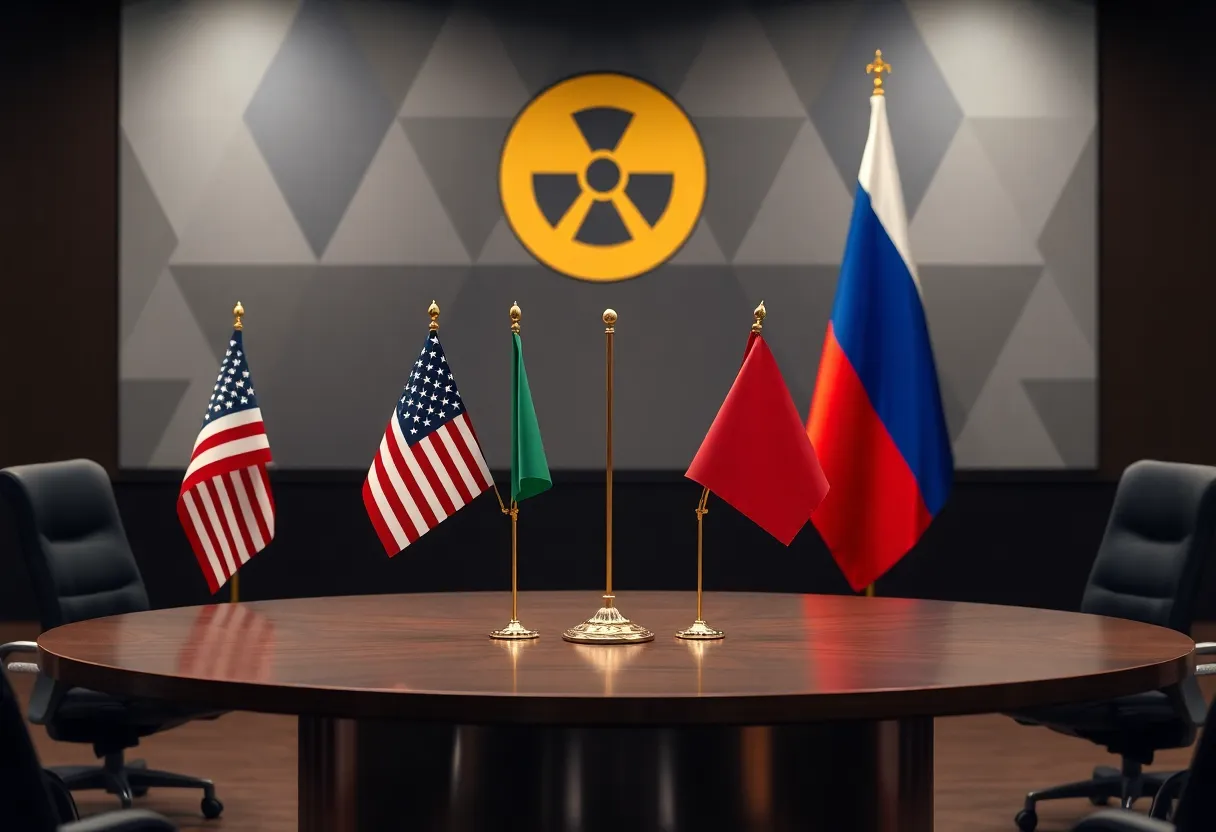News Summary
As tensions rise over Iran’s nuclear program, Russia is emerging as a potential mediator between the U.S. and Iran. With discussions on relocating Iran’s uranium stockpile to Russia and upcoming talks in Geneva and Oman, all eyes are on how these negotiations will unfold. The stakes are high as both nations navigate complex issues surrounding uranium management and assurances for a reliable agreement.
Russia Steps Up: A Potential Partner in U.S.-Iran Nuclear Talks
The ongoing tensions surrounding Iran’s nuclear program are heating up again, and it looks like Russia may just have the perfect opportunity to jump in as a mediator. As Iran seeks support leading up to crucial negotiations in Rome, chatter around relocating Iran’s stockpile of highly enriched uranium to Russia is gaining traction. This move could potentially set the stage for a smoother dialogue between the U.S. and Iran.
Breaches and Mediators: What’s the Plan?
In the event of any nuclear agreement breaches—whether by the U.S. or Iran—Russia is eyed as a reliable arbiter. Remember, back in 2018, President Donald Trump pulled out of the **2015 nuclear deal**, raising concerns about military action if a new plan isn’t in place. Fast forward to now, and recent indirect discussions between the U.S. and Iran, mediated by Oman, hint at significant strides made towards a resolution.
Upcoming Talks: What to Expect
With further technical talks slated for Geneva, and a high-profile meeting scheduled in Oman next weekend, there’s cautious optimism. The U.S. Special Envoy to Iran, Steve Witkoff, is aiming to nail down a deal in just 60 days, though there could be some roadblocks, particularly from Iran’s Foreign Minister, Abbas Araghchi.
Stumbling Blocks in the Way
The negotiations aren’t without their hurdles. One major sticking point is what to do with Iran’s enriched uranium. The U.S. wants Iran to either destroy their stockpiles or send them to a third country, like Russia. Iran, for its part, would prefer to keep its uranium. They’re also seeking guarantees that if they enter a new deal, the U.S. won’t just turn around and back out again like last time.
Although there have been some assurances that the U.S. isn’t looking to completely dismantle Iran’s nuclear program, conflicting messages from Witkoff have muddied the waters for Iran. The conversation is complicated further by Iran’s belief that a secure agreement would need to be solidified by a treaty from the U.S. Congress—something Araghchi seems doubtful Trump could rally.
Financial Discussions and Future Arrangements
Amid these economic discussions, there’s even talk of the U.S. compensating Iran if it decides to back out of an agreement. Notably, a system is being discussed that would empower Russia to return any uranium stockpiles to Iran in the case of a U.S. breach—a plan that could elevate Russia’s role away from traditional European powers like Germany, France, and the UK.
Interestingly, neither nation is excited about involving the United Nations significantly in these discussions. As the Rome talks approach, the Italian Prime Minister, Giorgia Meloni, stands ready to step in if negotiations hit any snags.
A Strong Hand for Iran?
Iran’s stance may have been fortified recently following the Saudi defense minister’s visit to Tehran right before these negotiations. Iran is not just sitting back; they’re actively seeking a binding agreement that ensures their nuclear disarmament while allowing them continued peaceful nuclear development.
Ready to Assist: Russia’s Role
Russia’s Foreign Minister, Sergey Lavrov, has indicated that they’re prepared to take on a mediating role in the nuclear talks. Following a recent meeting between Araghchi and President Vladimir Putin, Lavrov highlighted the growing political dialogue between the two countries, which can only support their potential involvement. Meanwhile, in the U.S., Secretary of State Marco Rubio expressed hopes for productive negotiations, while also hinting at the importance of maintaining sanctions.
This complex chess game continues to unfold as all parties strive to navigate through a sea of expectations, intentions, and strategic moves. With the stakes this high, the next couple of weeks are definitely ones to watch!
Deeper Dive: News & Info About This Topic
- The Guardian: Moscow May Gain Key Role in Iran Nuclear Deal as US Talks Progress
- Wikipedia: Iran Nuclear Deal
- AP News: Iran, Russia, US Nuclear Negotiations
- Google Search: Iran Nuclear Talks
- Reuters: Russia Declines to Say if It Would Accept Iran’s Enriched Uranium
- Encyclopedia Britannica: Iran Nuclear Program
- The Moscow Times: Russia Says It’s Ready to Help Mediate US-Iran Nuclear Talks
- Google News: Russia Iran Nuclear Talks







